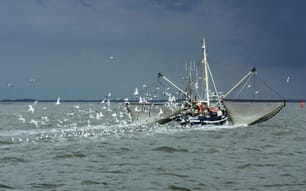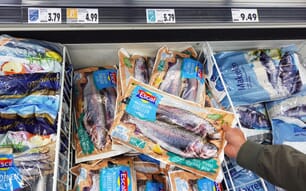Following the launch of Tilapia last month, pangasius is the second farmed fish species to meet the standards of the ASC certification programme. The ASC certified pangasius is recognised by the ASC logo on the packaging. This logo guarantees consumers that the fish they purchase has been responsibly farmed with respect for the environment and in a socially responsible manner.
The popularity of pangasius has soared over the last ten years. This year, the fish species that is widely cultivated in Viet Nam ranked as the most eaten fish in the Netherlands. Over the last decade, the annual production in Viet Nam has increased from 150,000 tonnes to 1.3 million tonnes in 2011. This explosive growth has led to unintended negative side effects. Measures have therefore been introduced to counteract these adverse impacts. The certification by the Aquaculture Stewardship Council serves as recognition for those fish farms that have organised their farming methods in a proven responsible manner. Companies with the ASC quality mark prevent the environment from being affected by water pollution, adopt strict guidelines to stop farmed fish from escaping and adhere to guidelines related to social conditions for workers and local communities.
The development of the criteria for the responsible farming of pangasius took more than three years and involved some 600 people from different backgrounds. This industry which is so important for the region can only grow sustainably if its impact is reduced. Decreasing the pollution of the Mekong River and other rivers is one of the largest priorities in this respect, says Chris Ninnes, director of the Aquaculture Stewardship Council. Among other things, ASC farms must therefore invest in the treatment of wastewater before discharging it into the river.
First ASC Certified Pangasius Now Available in the Netherlands
THE NETHERLANDS - From 21 September, pangasius products with the independent quality mark of the Aquaculture Stewardship Council (ASC) for responsibly farmed fish are for sale in the Netherlands.
by Lucy Towers



